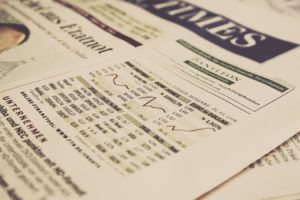High Yield Bond and Junk Bond Funds
Unbeknownst to most of the investing public, most high yield bond funds or “junk bonds,” i.e. less than investment grade bonds, supposedly pay higher yields to compensate for risk. However, by definition, the  issuers of these funds have credit worthiness issues, or issues regarding the ability to repay. Issuers may be distressed. The notes or bonds may be the product of a leveraged buy-out. Many of these issuers’ only access to capital is by promising higher yields.
issuers of these funds have credit worthiness issues, or issues regarding the ability to repay. Issuers may be distressed. The notes or bonds may be the product of a leveraged buy-out. Many of these issuers’ only access to capital is by promising higher yields.
Some high yield bond funds may contain structured settlements, notes or annuities associated with the payment of lottery winners, tobacco bonds, or legal settlements. High yield bonds operate under the premise that although any one issuer may be likely to default, through diversification, even if a certain or significant number of issuers in any portfolio default, the returns associated with those issuers that do not default, taken as a whole, may result in higher absolute returns for investors, willing to take such risks.
However, recently, many high yield junk bond funds may also contain high risk collateralized mortgage obligations, or high risk subprime or alternative tranches of collateralized mortgage obligations, or other securities, including “dirt bonds” (loans on undeveloped real estate),inverse floaters, which are used as hedges to intended to tweak performance, but which may also lead to significant losses, or other illiquid investments for which there is no ready market.
Interest Rate Risk
Like all bonds, high yield bonds are also subject to interest rate risk. When interest rates go up, bond prices, including the junk bond prices go down. Bonds with longer maturities, and which may pay more interest, as compared with shorter term bonds, may lose more of their value. Because bond funds will manage these securities, generally in rising or falling markets, and generally will not own these bonds to maturity, irrespective of creditworthiness, these losses in addition to being incorporated as part of the lower Net Asset Value or NAV of any particular fund, upon redemption, these losses will be realized losses.
 Bottom line: High yield bonds can be very risky. In connection with the recommendation to purchase high yield or junk bonds, your stockbroker or investment professional has a duty to conduct due diligence, including reading the prospectus, and understanding all the relevant risks and characteristics of any such fund before recommending it to any investor, and also has a duty to know and understand all the relevant facts concerning any particular investor, including their investment objective, tolerance or ability to withstand risk, and their overall financial condition, before recommending any such investments to that particular investor.
Bottom line: High yield bonds can be very risky. In connection with the recommendation to purchase high yield or junk bonds, your stockbroker or investment professional has a duty to conduct due diligence, including reading the prospectus, and understanding all the relevant risks and characteristics of any such fund before recommending it to any investor, and also has a duty to know and understand all the relevant facts concerning any particular investor, including their investment objective, tolerance or ability to withstand risk, and their overall financial condition, before recommending any such investments to that particular investor.
Guiliano Law Group
Our practice is limited to the representation of investors. We accept representation on a contingent fee basis, meaning there is no cost to you unless we make a recovery for you. There is never any charge for a consultation or an evaluation of your claim. For more information, contact us at (877) SEC-ATTY.
To learn more about FINRA Securities Arbitration, and the legal process, please visit us at securitiesarbitrations.com
